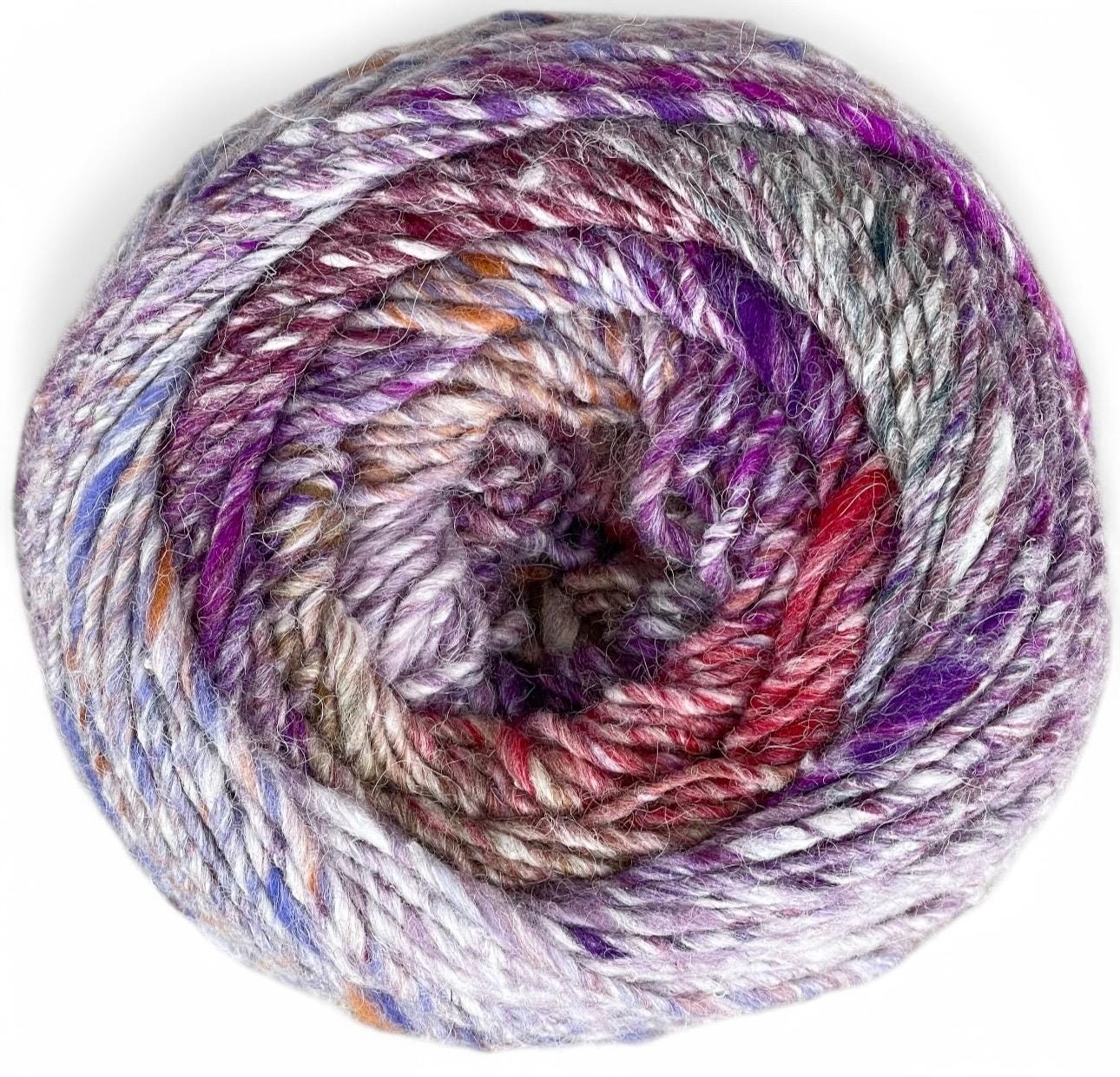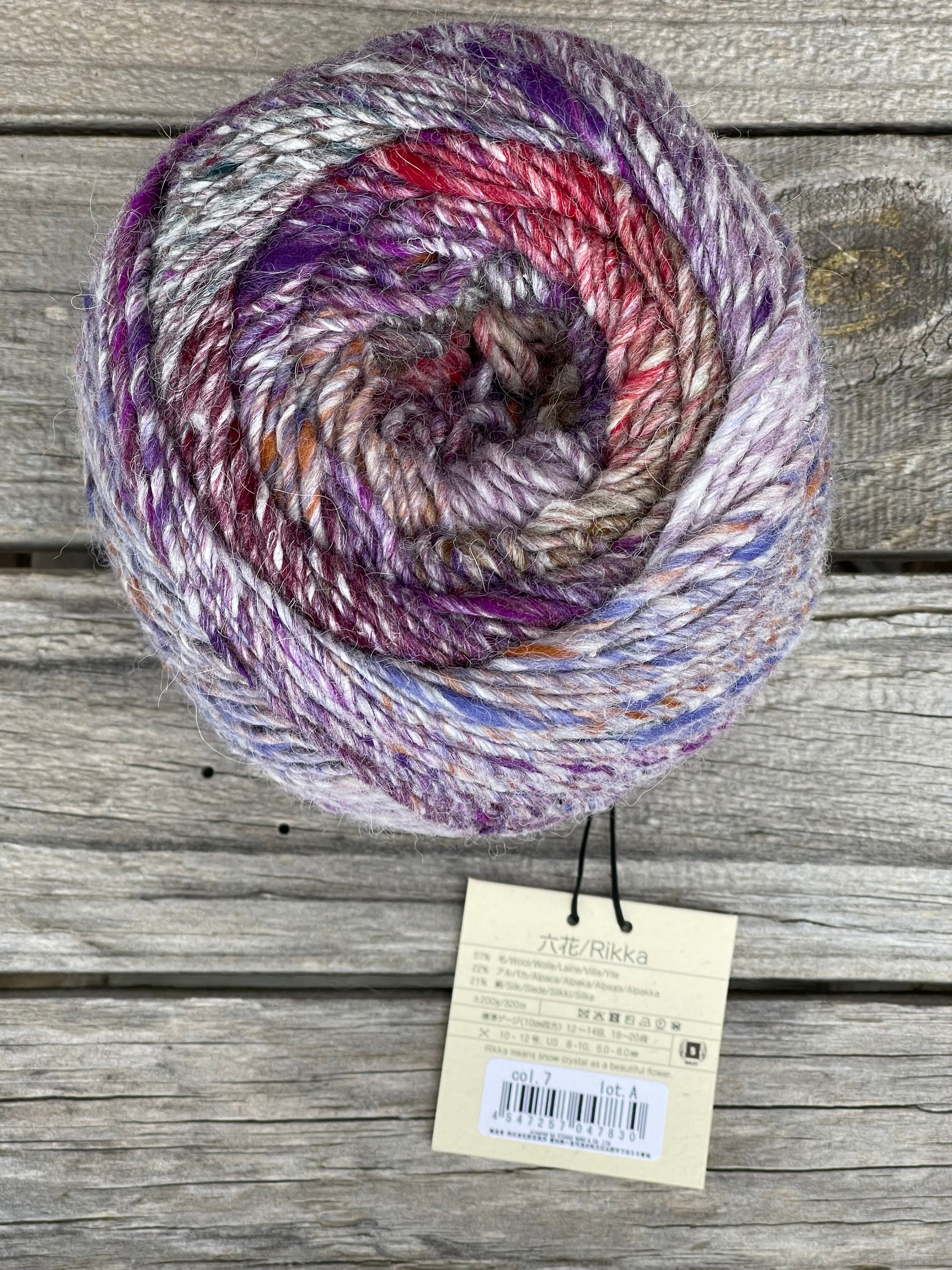NORO Rikka Tarumizu (7) - 200g Bulky


$42.56
Discover Noro Rikka - a bulky yarn with a luxurious blend of wool, alpaca, and silk. Knit with big needles for fast, comfy garments and accessories! You'll love the vibrant colorways that blend and stripe together for a fun and playful fabric, as well as the subtle and sophisticated neutrals.
FIBER CONTENT: 57% Wool, 22% Alpaca, 21% Silk
YARDAGE: 350 yds / 200 g
WEIGHT: Bulky
GAUGE: 12-15 sts = 4” on US 10-11/ 6.0 mm to 8.0mm
CARE: Hand wash, dry flat
"For persons who are born or grew up in a place where unspoiled great nature is left, nature is always close to their existence. No matter if they are aware of it or not, they are inspired by it in many ways. From ancient times Japanese have accepted, enjoyed, and been charmed by the non-uniformity, unevenness, & coarseness of nature. This is the basis of the philosophy of Noro yarn. Natural fibers have great features that humans can not mimic. I want to leave these features as much as possible in my yarns. If I make wool yarn, I use various lengths and thicknesses of wool fibers to try to reproduce the nature of sheep itself in our yarn: such as unevenness and coarseness. These natural states are intentionally left by using human hands and old machinery so that natural fibers are not over processed. All of this is so knitters can feel nature more closely when knitting with Noro yarns. Impurities in the raw materials are carefully removed by hand without the use of chemical treatment which is not good for the fibers or the environment. We also aim to reproduce the colors of nature in our yarns: leaves for example, all look green, but in reality they come in countless variations of green. By mixing colors we can give our yarns more natural feeling colors reminiscent of oceans, mountains, flowers, trees and so on." ~ Eisaku Noro ~
All animal fibers that are used in the yarns come from certified organic farms, from international sources such as Australia, the Falkland Islands and South Africa. Noro is personally involved with inspecting all aspects of production, from visiting the animal farms to checking the machinery used and keeping restrictions on the dye processes to maintain products that are as eco-friendly as possible. He says "Friction, rubbing and heat during processing weaken the fibers in direct proportion to the length of time they are processed. By dramatically shortening this process, we are preventing damage to the enzymes in the fibers and simultaneously profiting the environment."
Returns & Exchanges
I don't accept returns, exchanges, or cancellations
But please contact me if you have any problems with your order.